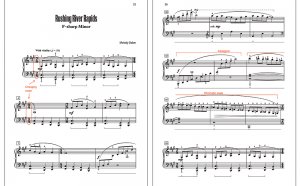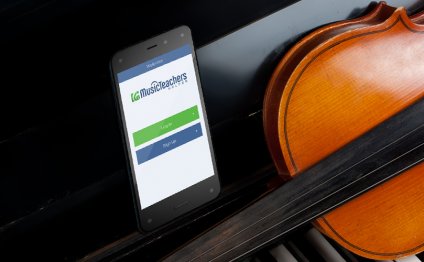
Going rate for Piano lessons
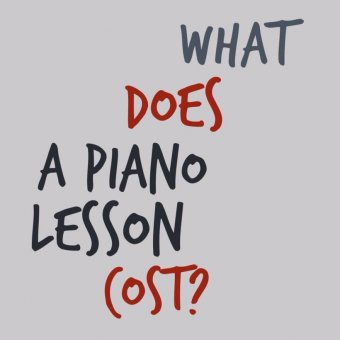 Signing up for piano lessons means committing to practice, attending lessons and paying the fees on a regular basis. What should your budget be expecting to include when you sign up your child (or yourself) for piano lessons?
Signing up for piano lessons means committing to practice, attending lessons and paying the fees on a regular basis. What should your budget be expecting to include when you sign up your child (or yourself) for piano lessons?
In some parts of the world there are music teacher organisations which provide recommended minimum rates for their (qualified and experienced) members to be charging, but no matter where in the world you are you will find a massive range of prices being charged for a piano lesson. Why?
Education and Qualification: Some teachers have spent many years studying music at a university level and have multiple degrees and diplomas in performance, piano teaching and music theory, even composition and musicology. Other teachers have never taken any kind of study toward a diploma, degree or qualification, not even a piano exam… Some teachers engage in ongoing professional development every year (attending conferences, taking courses, engaging in research) while others don’t ever bother with professional development at all.
Performance experience: Some teachers have extensive concert-giving experience, including participating in the world’s highest profile piano competitions in their late teens and twenties and performing concertos with leading orchestras and conductors. Others have extensive experience as collaborative pianists (what we used to call “accompanying”, a field that until very recently had no substantial competition track). Others have experience performing as pianists in other settings, such as providing background music in restaurants or shops, being a keyboardist in a band, or playing for church services and other religious events. And then there are teachers who never really performed much at all in any context…
Teaching Experience: Some teachers have taught hundreds of students and given over fifty thousand piano lessons. Other teachers have only had two or three students before and only given twenty lessons so far.
Geography and Local Cost of Living: Where lessons are offered can make a big difference in the price paid. As is the case with real estate, lessons in the big cities are often substantially more expensive than lessons in the country. Fees are charged in the context of the local, not national, economy. Teachers live in the local economy, and so do their families.
Demographics: Are there a lot of children in the neighbourhood? Is the local adult population demographically likely to want to take piano lessons? Do the local communities value the piano as a musical instrument of choice? These demographics have a substantial impact on demand for lessons.
Cross-subsidisation of the business: Many piano teachers don’t factor in the true cost of delivering lessons when they calculate their fees; piano teachers often have no training in or native capacity for business. The price of the lesson needs to cover ALL the costs of providing the service, but often the costs are covered under the family budget instead and this results in the service being able to be provided for less than {cost + labour}. Other teachers calculate fees factoring in the full impact of costs.
What fees cost last year: Teachers are loathe to raise fees by too much in a single year, so often the fees a teacher charges this year are largely determined by what they charged last year + 2-3%, or + $1, or maybe with no increase at all. On the other hand, if a teacher hasn’t raised their rates in a very long time they might realise they need a big jump to keep the business operational.
Reputation/Word of Mouth: Teachers who are highly recommended by the families they teach very quickly fill up with students. Teachers who are so busy they can’t fit in all their prospective students are under no pressure to not raise their fees. Teachers who struggle to attract students, on the other hand, may feel pressure to keep their rates steady or even lower them.
Piano lessons are very different to other kinds of consumer services in that they consist of a long-term relationship where the teacher is planning a learning sequence over a number of years, responding to the individual needs and interests of the student as those needs and interests appear. The lesson involves the development of physical skills, listening skills, analytical skills, story-telling, reading, writing, organising, planning and performance skills, with lashings of emotional IQ development thrown in on the side. Choosing one teacher from another isn’t as simple as selecting the brand of toothpaste you use or a restaurant for a meal, and it’s nothing at all like buying a new pair of shoes.
In a way, the price is one of the least important considerations in choosing a teacher, except for the purpose of being able to budget – you want to know what to expect.
So how much does a piano lesson cost in 2014?
In the United Kingdom the Musician’s Union recommends a minimum hourly rate of £31, while in Australia the various state Music Teacher Associations recommend rates between $A60 and $A78 an hour. In both these countries you can find lessons for less than these amounts (take it as a sign that the teacher has no qualifications and/or limited experience), and you can find lessons for a lot more (take it as a sign that the teacher has qualifications, experience, reputation, and possibly a waiting list, and doesn’t mind earning more!).
But in the United States there are no associations permitted to recommend minimum rates, thanks to a local quirk of the the US Federal Trade Commission. So I’ve done a bit of a search, and am in the process of collating data from all over the USA, rural counties, major metropolises, north, south, mid-west and coastal…
YOU MIGHT ALSO LIKE
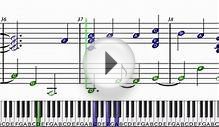
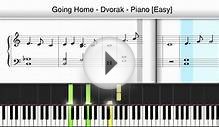

Share this Post
Related posts
Basic piano lessons for Kids
If you want to teach your child to play the piano, there are several ways of doing it - you can find a piano teacher for…
Read MoreBest online piano lessons for Kids
Excerpt from a newspaper article The Canadian team behind Little Composers have created what may be the best music apps…
Read More
